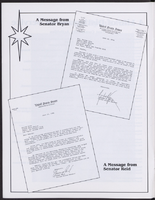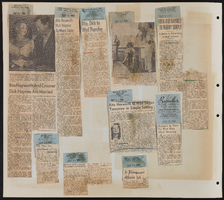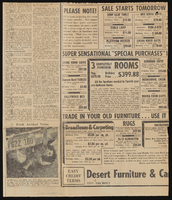Search the Special Collections and Archives Portal
Search Results

Kochy Tang oral history interview: transcript
Date
Archival Collection
Description
Oral history interview with Kochy Tang conducted by Kristel Peralta, Vanessa Concepcion, and Stefani Evans on May 26, 2021 for Reflections: The Las Vegas Asian American and Pacific Islander Oral History Project. Kochy gives a family history of her parents and how they both came to practice medicine; her father served in a Mobile Army Surgical Hospital during the Korean War and later practiced alternative medicine alongside Kochy's mother in San Francisco and Reno. Kochy shares her educational and employment path pursuing osteopathic medicine and how, with the help of Tony Marnell, she was able to open her pratice within the M Resort and Casino. She discusses her work as a Doctor of Osteopathy (D.O.) and the relationships she has built within the Las Vegas medical community.
Text
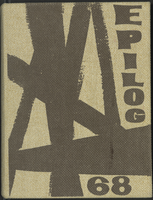
Epilogue: Nevada Southern University Yearbook, 1968
Date
Description
Yearbook main highlights: schools and departments; detailed lists with names and headshots of faculty, administration and students; variety of photos from activities, festivals, campus life, and buildings; campus organizations such as sororities, fraternities and councils; beauty contest winners; college sports and featured athletes; and printed advertisements of local businesses; Institution name: Nevada Southern University, Las Vegas, NV
Mixed Content
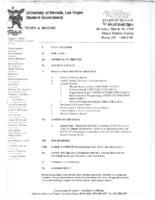
Meeting minutes for Consolidated Student Senate University of Nevada, Las Vegas, March 16, 1998
Date
Archival Collection
Description
Text
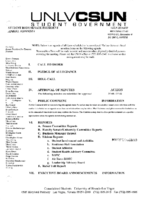
Meeting minutes for Consolidated Student Senate, University of Nevada, Las Vegas, December 04, 2006
Date
Archival Collection
Description
Text
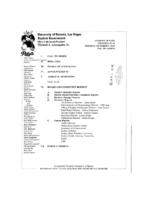
Meeting minutes for Consolidated Student Senate, University of Nevada, Las Vegas, October 06, 2003
Date
Archival Collection
Description
Text

Transcript of interview with Lilly Fong by Annie Yuk-Siu Shum, February 29, 1980
Date
Archival Collection
Description
Text
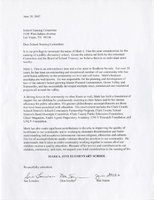
Application and supporting documents for the naming of Mark L. Fine Elementary School, 2007
Date
Archival Collection
Description
The application and supporting documents provide details about Mark Fine and his contributions to Clark County and Las Vegas, Nevada. There are letters of support from many members of the community, including his children and elected officials, and from leaders in religious groups, non-profit organizations and business enterprises.
Text

